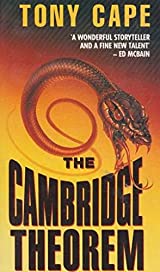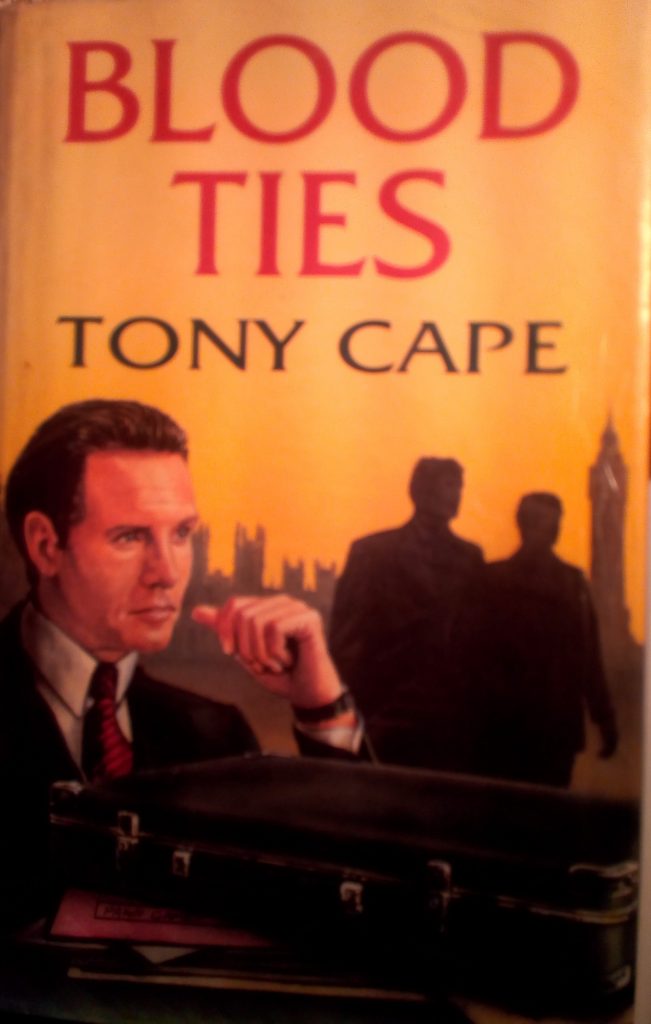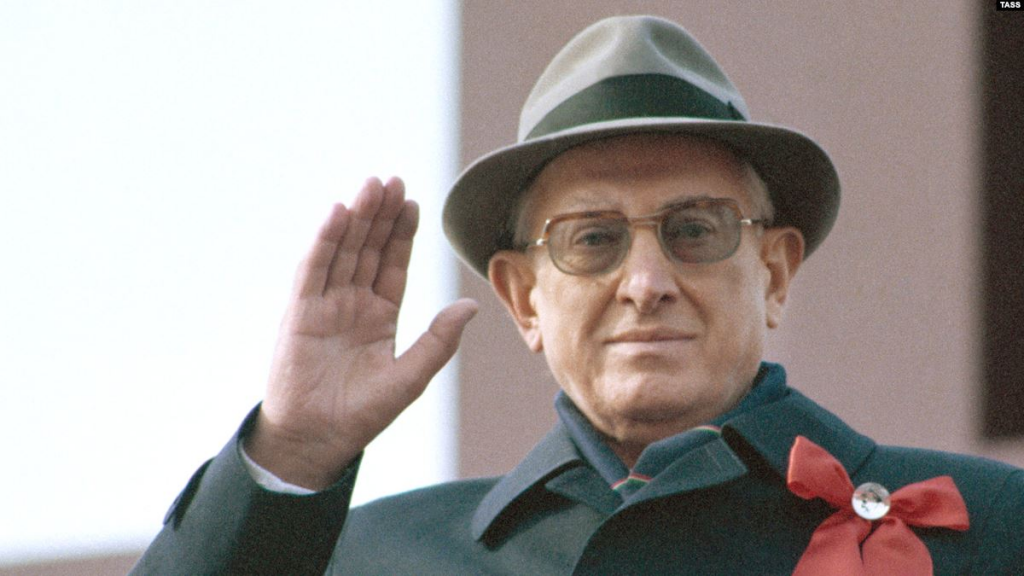
You would think that after several decades reading spy thrillers about Russia, I would know all the good ones. Then, browsing the Oxfam bookshop on the Woodstock Road in Oxford a few years ago, I came across The Cambridge Theorem.
How had I missed this for so long? The Cambridge Theorem is brilliant. What is more, it turned out —or so I thought at the time— that it was the first in a trilogy based around its central character.
Before I was half way through The Cambridge Theorem, I had found the next two in the series —The Last Defector (1991) Triple Cross (1993)— and ordered them. Only later did I discover the trilogy was in fact a tetrology.

Blood Ties (1996) does not appear to have made it to paperback. In fact it is so well-hidden that I emailed the author (easily found at www.tonycape.com) who confirmed that it is indeed the final book in the series.
The Cambridge Theorem is set in 1982, in Cambridge and Moscow. Genre-wise, it is one of those ‘who is the fifth / sixth man?’ novels, based on the premise that the Cambridge spy ring of Philby, Burgess, McLean, and Blunt was never fully exposed, and that a Soviet spy remained embedded and undiscovered at the heart of the British establishment.
This is not a massively original premise for a spy novel in itself; it still lives on, for example, in Charles Cumming’s The Trinity Six (2011). Tony Cape does it very well though, in a densely plotted novel, mixing tension and action with fine period feel and well-hidden, sensibly revealed twists.
Cape includes some real characters alongside the fictional. As in a number of other Russia-in-fiction spy thrillers —to name but two, Frederick Forsyth’s The Fourth Protocol (1984), Ted Allbeury’s The Other Side of Silence (1981)— Kim Philby (1912-88) appears, and is given greater status and influence in Moscow than he really had during his years in exile.
Yurii Andropov, Soviet leader 1982-84, is also portrayed, reasonably accurately, as a man of ‘puzzling contradiction’. On the one hand a late-flourishing reformer whose appearance was kindly and professorial, on the other someone universally feared and cruel, quite happy to lock up dissidents in psychiatric hospitals (pp. 34-35).

The plot revolves around the apparent suicide (aren’t suicides always apparent in such books?) of a brilliant Cambridge postgraduate student who devoted his mathematically astute brain to the classic mysteries of those years —the Kennedy assassination, UFOs, the Bermuda triangle. Then he turns his attention to the Cambridge spies.
The hero of The Cambridge Theorem, and the three subsequent novels in the series, is provincial detective, Derek Smailes, on a journey of personal discovery alongside the professional discoveries he makes as he investigates the suicide. Smailes is all that such a figure should be —maverick (of course), dogged (naturally), and very smart (inevitably).
The Cambridge Theorem is at home in the corridors of Cambridge colleges (a fictional college in this case, St Margaret’s) and on what pass for mean streets in Cambridge. There are plenty of ‘detective novel’ details alongside the spy thriller; an inventory of possessions placed in the suicide’s room, dusting for prints, tracing car number plates, and so on.
The denouement, when it comes, is pleasingly drawn out. Not one of those “quickly tie up the plot’s loose ends to meet the publisher’s deadline” efforts.
The Russian element in terms of setting is limited to a few passages set in Philby’s home and the KGB’s headquarters, but the whole question of what made the Cambridge spies spy during the Cold War is well covered.
If I have a minor gripe, from the point of view of the writer’s craft, the final chapters contain at least two rather lengthy “let me carefully explain the plot and how clever its twists are” monologues from key characters.
Definitely one to recommend —well researched along several seams, terrifically good writing with a real 1980s period feel, and that key element, it’s a page-turner.